Louisiana's Mifepristone Crime
Louisiana has just banned medicated abortion pill access in a state that has already enacted the most extreme abortion procedure restrictions.
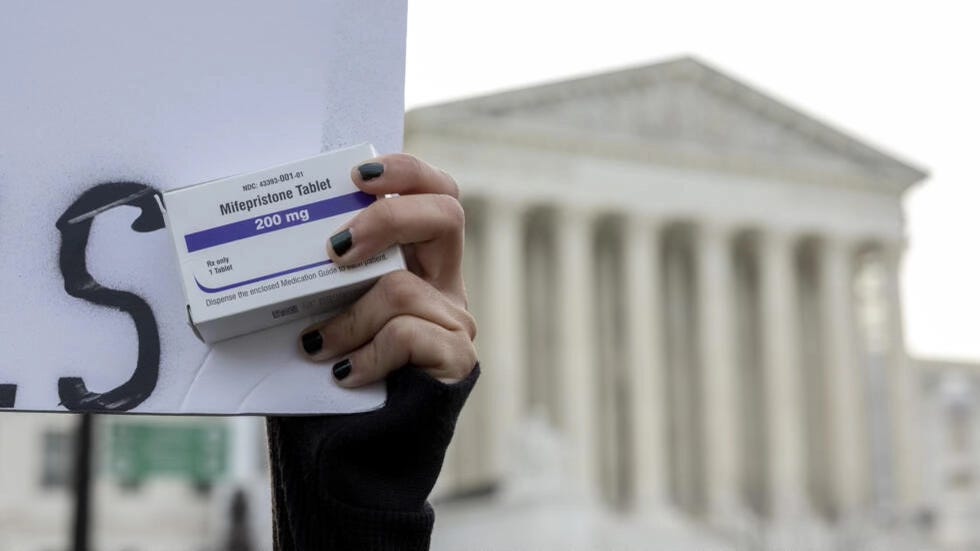
Louisiana lawmakers passed legislation on Thursday that now designates abortion pills Mifepristone and Misoprostol as dangerous controlled substances be listed as Schedule IV drugs under the state's Uniform Controlled Dangerous Substances Law. This means Louisiana is the first state in the nation to criminalize the possession of these drugs, making it a crime punishable by up to 10 years in prison for anyone caught with the drugs without a valid prescription and thousands of dollars in fines.
This LA-SB276 flagship law is the first to establish another extreme regulation in the state for a medication that was approved by the US Food and Drug Administration (FDA) over 20 years ago, with a safety record of over 99%. This new law means Mifepristone is more regulated in the State of Louisiana than Fentanyl opioids.
A law of this kind also acts as a new strategy for anti-abortion activists to further limit the reproductive health care of women across the country, as it creates a new conservative template that will undoubtedly be employed by Republican majorities in states all over the country.
The Louisiana legislation has created a new crime called "coerced criminal abortion,” where someone "knowingly" gives abortion pills to a pregnant woman to cause or attempt to cause an abortion "without her knowledge or consent." While the original bill was created to hinder someone giving a pregnant woman the medication without her consent, the Louisiana Right to Life organization — the state's most powerful anti-abortion group — has helped draft the law so that the regulations on Mifepristone are so substantially restricted, that the medication becomes nearly impossible for consenting women in Louisiana to access.
Considering that Mifepristone and Misoprostol are routinely used to treat miscarriages, stop obstetric hemorrhaging, induce labor, or prepare the cervix for a range of procedures inside the uterus, such as inserting an IUD or taking a biopsy of the uterine lining, this new kind of law would pose imminent risks to women’s lives. Dr. Nicole Freehill, a New Orleans OB-GYN who signed a letter to the state senate urging members to think twice about ratification, told the committee: "It's just really jaw-dropping — almost a day doesn't go by that I don't utilize one or both of these medications."
Mifepristone is the first in a sequence of two medications used in a medicated abortion procedure that has been determined to be safe and legal in the United States since the FDA approved it nearly 20 years ago. In April 2019, the FDA approved the first generic form of mifepristone, following a review of the evidence that medication abortion is a safe, effective way to end an early pregnancy.
The medication has been deemed so safe that its side-effects and reactions pale in comparison to more mainstream drugs like penicillin and viagra. According to a study on life-threatening allergic reactions cited in an Amicus Brief filed with the US Supreme Court by the FDA, the risk of death by penicillin — a common antibiotic used to treat bacterial infections like pneumonia — is four times greater than it is for Mifepristone. Likewise, the risk of death by taking the erectile disfunction pill Viagra is nearly 10 times greater.
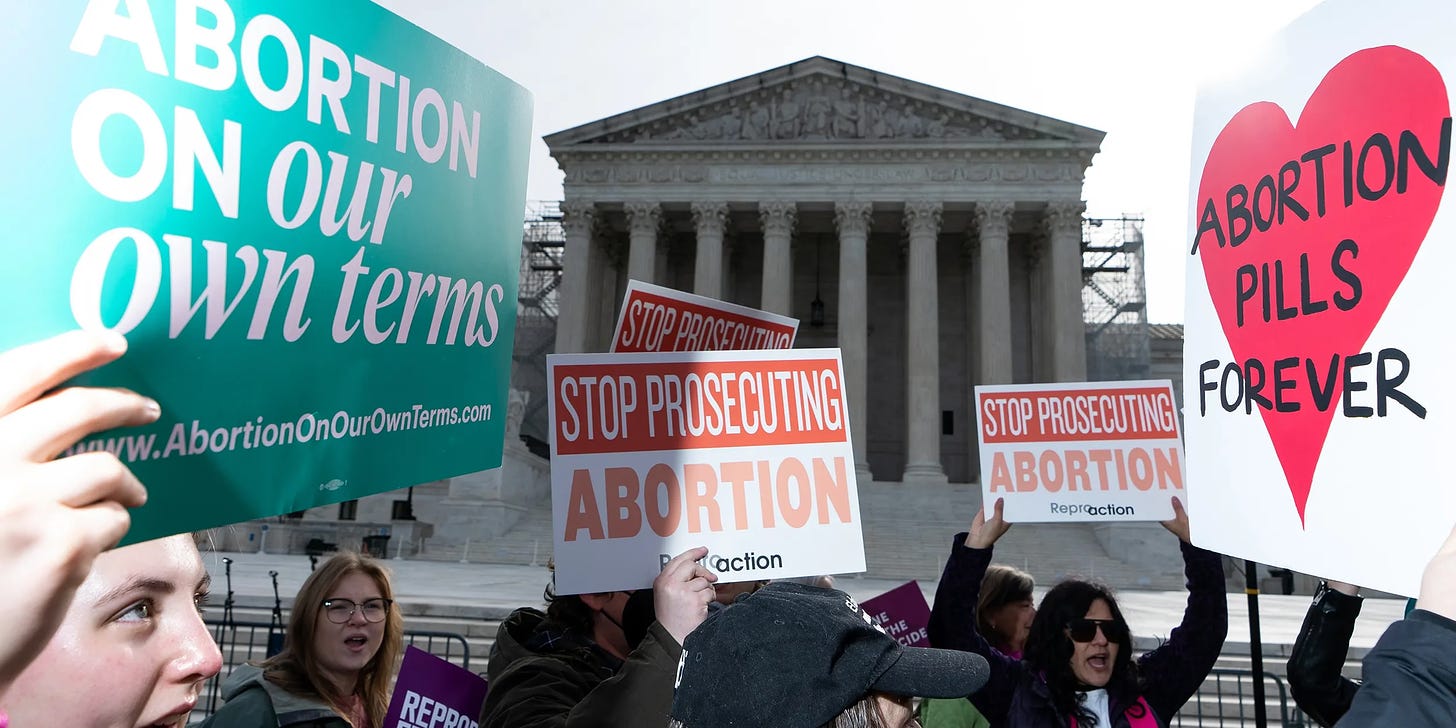
A medical journal report published in 2022 determined that since the FDA approved mifepristone in 2000, the medication has had more scrutiny and regulation than most other prescription drugs, including opioids like Fentanyl.
A safety program, established as a condition of Mifepristone’s approval, restricted dispensing to physicians to assess the duration of pregnancy, diagnose ectopic pregnancies, and provide surgical intervention or access to medical facilities able to provide blood transfusions in cases of incomplete abortion or severe bleeding. In order to ensure awareness of possible rare adverse events from taking Mifepristone, the FDA program further required patients to receive a medication guide and patients and physicians had to sign agreement forms. Patients were also required to ingest the medication in-person and in the presence of the physician to ensure maximum safety.
On May 7, 2024, the Louisiana House Committee on Administration of Criminal Justice rejected HB 164, which would have added rape and incest exceptions to the current abortion ban in the state. Louisiana has one of the strictest abortion bans in the country that went into effect in 2022 directly following the Dobbs decision, which overturned Roe v. Wade in June of that year.
The trigger ban, which was enacted on the same day Roe was overturned, provided that the only exceptions for abortion services were a substantial risk of death or impairment to the mother if she continues the pregnancy, or in the case of “medically futile” pregnancies when the fetus has a fatal abnormality. Louisiana's current abortion ban already makes it a crime to provide an abortion, which includes giving someone medications used to induce abortion, and a 2022 law added up to 50 years in prison for mailing Mifepristone or Misoprostol.
There are currently 14 states with abortion bans at all stages of pregnancy, but unlike Louisiana, six of those states have exceptions in cases of rape and five have exceptions for incest. Following this new extreme prototype for further limiting basic reproductive health care for women and girls through a Mifepristone ban, the other states that have enacted extreme abortion bans are likely to follow the strategy now being employed by Louisiana.
While many women across the South are not necessarily flocking to Louisiana for abortion services, the limitations are making it increasingly difficult for women to receive basic reproductive healthcare. On May 1, Florida further restricted a previous 15-week abortion ban to now deny women abortions after six weeks of pregnancy, before many even know they are pregnant. This means that patients will now have to join other southern women who must travel as far north as Virginia to receive necessary medical assistance and care.
Conservative coalitions across the country, trying to block access to Mifepristone by attempting to over classify the drug out of existence on the basis of non-existent safety concerns, have created a dangerous strategy. Even if this bill does not ultimately pass in Louisiana, the other red sates in the country now have a Louisiana-based template for pursuing their own Mifepristone regulations. As we await a US Supreme Court ruling later this year on the future availability of these medications in the United States, we can all take comfort in knowing that we won’t have to worry about people — mostly of the male persuasion — being disrupted in their daily attempts to acquire Viagra and/or Fentanyl.
Amee Vanderpool writes the SHERO Newsletter, is an attorney, published author, contributor to newspapers and magazines, and an analyst for BBC radio. She can be reached at avanderpool@gmail.com or follow her on Twitter @girlsreallyrule.
Paid subscriptions and one-time tributes embedded in each article allow me to keep publishing critical and informative work that is sometimes made available to the public — thank you. If you like this piece and want to support independent journalism further, you can forward this article to others, get a paid subscription or gift subscription, or donate as much as you like today.




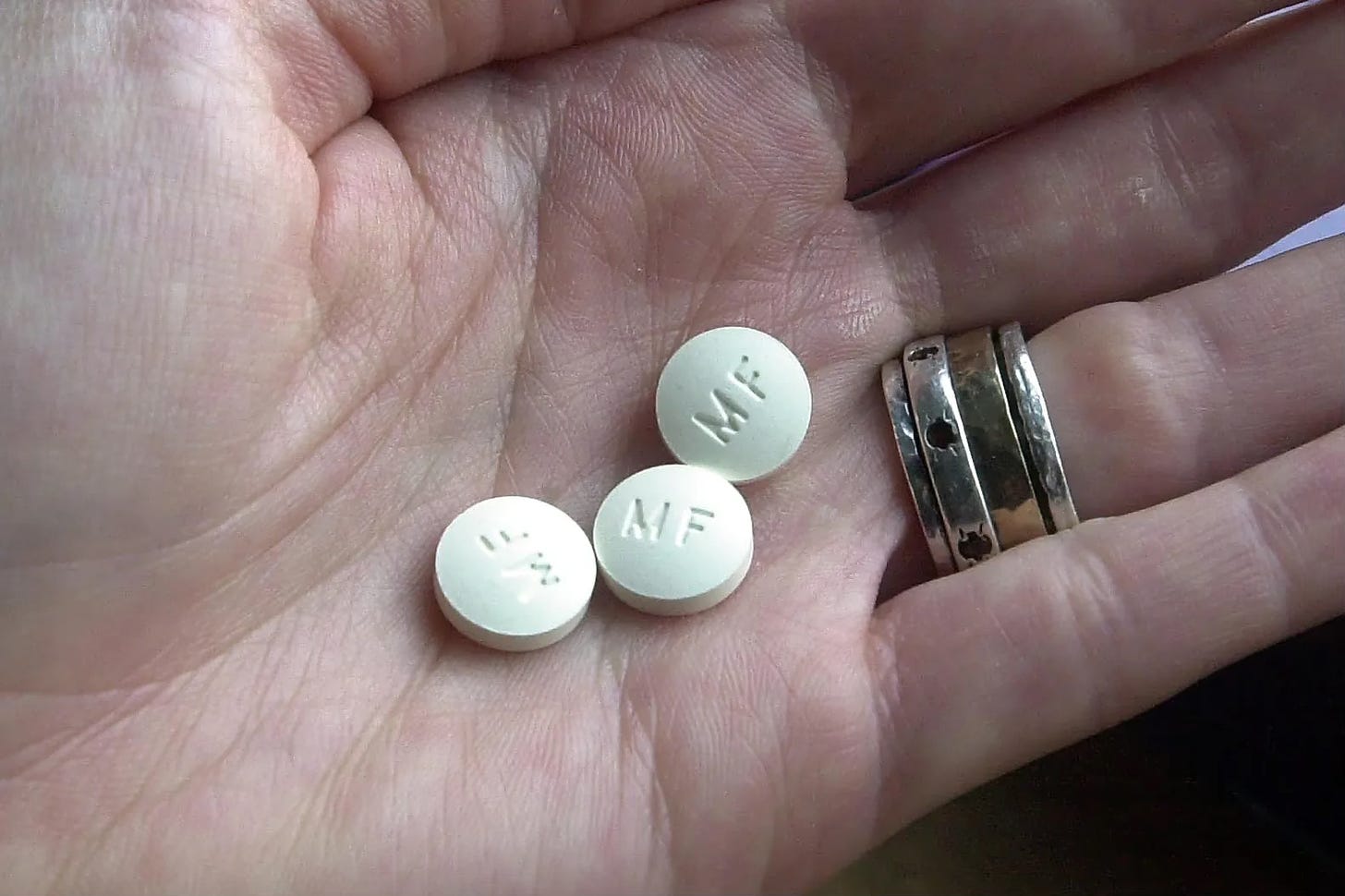
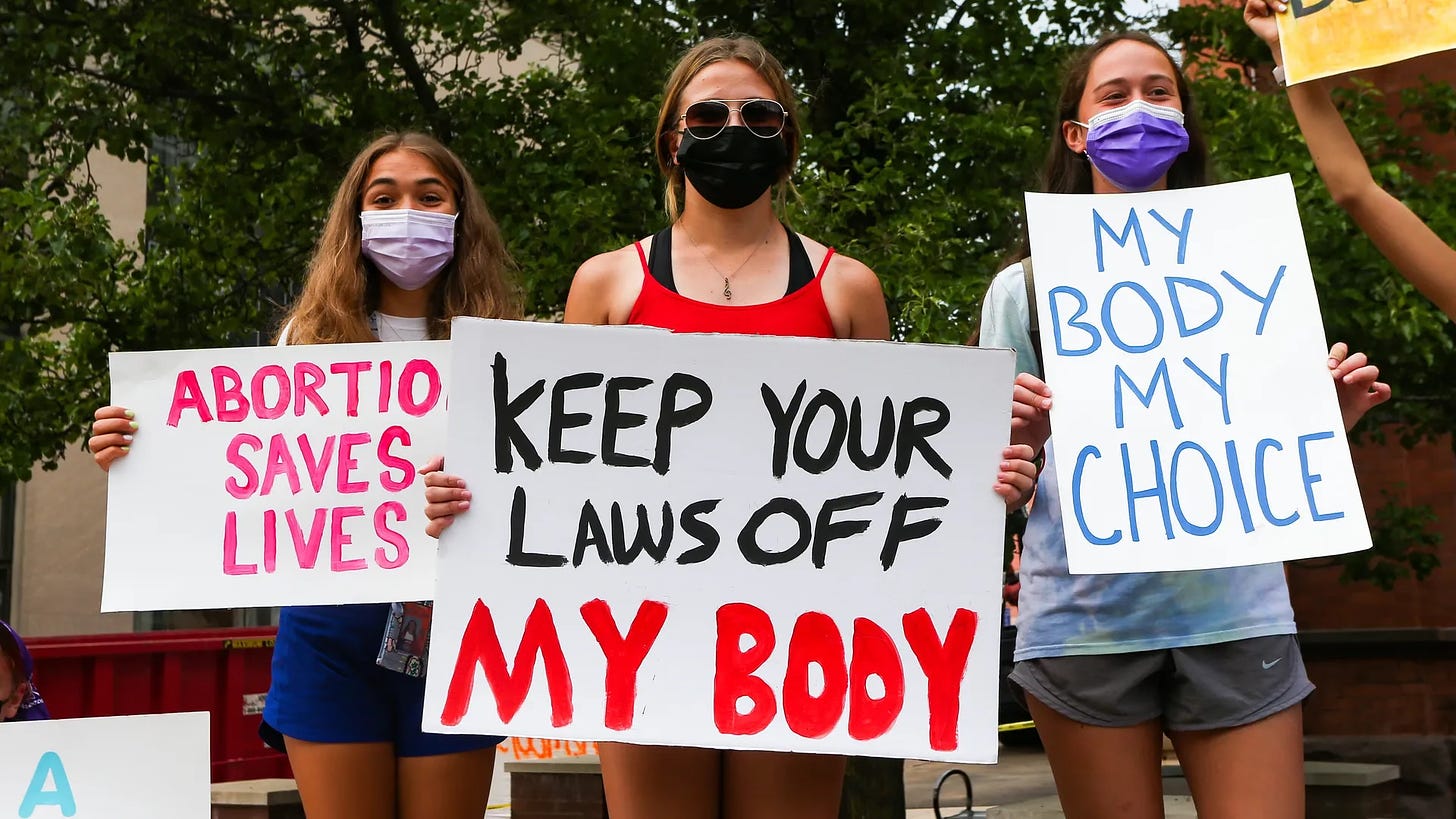
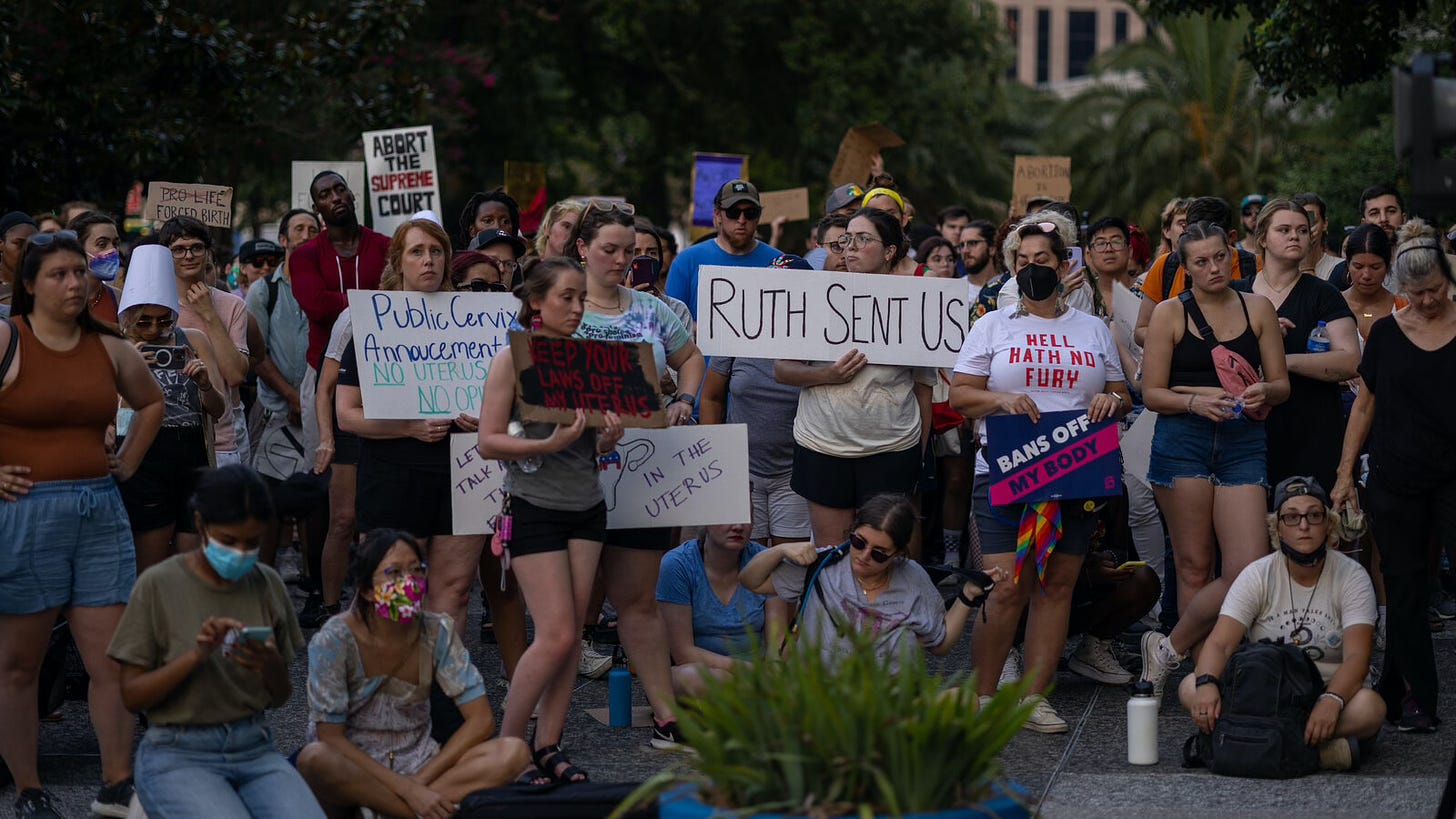
What a train wreck. Dems need to be running on this day and night, and fuck decorum, demonize the supreme mullah court daily too.